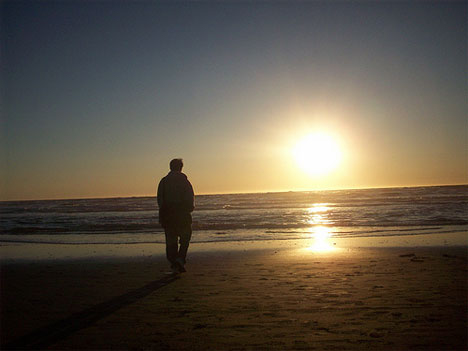If you’ve ever spoken to someone who is part of a 12-step program, one of the things you’ve most likely been told is that it’s a spiritual program. The founder of Alcoholics Anonymous, Bill W. and his companions, came from rather traditional Christian backgrounds but wanted to move beyond the confines of that experience to something more universal. It’s not my purpose to debate whether they were successful in that process or limited by their understanding of religion, spirituality, and culture. Instead, I think it’s helpful to consider some key features of 12-step programs that do speak to the role of spirituality in any recovery process.
Recovery is a broad term associated with addictions, mental illness, physical illness, grief, abuse, and moving on from broken relationships, as in divorce recovery. The process of recovery can be very unique because of the person, the person’s culture, and what it means for the person to recover. For example, I’ve spoken to many people who live with PTSD who have told me that running and other physical exercise has been important to their recovery process. On the other hand, a person I know who recently lost an intimate loved one shared how important singing has been in the recovery from loss.

There are many different spiritual dimensions in 12-step programs. I’d like to highlight three that I find particularly relevant to any recovery process.
First, 12-step programs begin with the recognition that an individual is powerless to control the addiction (step 1) while also acknowledging the existence of a power in life greater than self (step 2). These two steps root the process of recovery in the awareness that whatever problem I’m experiencing is something I can’t control on my own. Many of us get caught in addictive cycles or just make ourselves crazy by attempting to control life rather than acknowledging that control is an illusion. Facing the stark reality that I’m out of control in some way, whether that’s because of trauma related flashbacks, anxiety attacks, depression, or addiction, is a difficult thing to admit. But without recognizing the problem, how can it be healed? At the same time, our problems need to be seen in life’s larger context. There’s something more powerful in life than me.
Have you ever visited the Grand Canyon, or sat along the beach, or just looked up at the night sky and looked at the stars? When we pause to take in the vast wonder of creation, we often have a humbling experience: compared with the grandeur of nature, our lives and our problems are pretty small. From the perspective of recognizing that there’s something bigger, more vast, and clearly more powerful in the universe, we can begin to get a new perspective on our own lives and our problems. From this vantage point, we can see a broader world of possibilities and perhaps move toward hope that our particular problems may have a solution.

Second, several of the 12-steps draw a person to consider personal responsibility and the process of reconciliation. The priority given to the process of reconciliation is essential for spiritual living. To that end, we need to recognize that we do hurt ourselves and others. With that awareness, forgiveness is possible. Forgiveness is not a matter of saying that past actions were suddenly okay. Instead, forgiveness is about releasing the pain of the hurt or injury and looking for ways to restore balance. Essentially, it’s that restoration of balance within one’s life and with others that’s at the heart of reconciliation.
The opposite of this process is holding onto pain from past hurt, insult, or injury. We may hold onto guilt or shame for the things we done to ourselves or done to others as well as resentment for what others have done to us. We may think that we’re justified to hold onto the pain and have developed a rationale for why forgiveness isn’t possible. But the lack of forgiveness poisons us with bitterness, resentment, and leads to a reenactment of the pain in our memories and dreams. It does nothing but hurt us. While it may take time, living in balance requires a release of the pain and restoration of wholeness through reconciliation.
Third, while not a specific step, essential to recovery is the commitment to remain in fellowship with others who share the goal of recovery. In 12-step programs, this is done by attending meetings, speaking regularly with a sponsor, or participating in larger group events called “round-ups.” Left on our own, it’s far to easy to sink into the pain that characterizes our problems, whether those problems are addiction, mental illness, grief, or some other loss. Breaking out of that isolation to be with others who strive to live with wholeness strengthens our ability to recover and live in more integrated ways.

All three major themes of 12-step programs are essential to recovery of any kind. But they are also hallmarks of spiritual living, no matter what one’s belief system may be. They are key to living with balance one day at a time.
Right ON!
Thanks, for showing us where the 12 steps fit into everyone’s life.
Nothing that I ever tried on my own helped me stop drinking until I got honest with myself and my higher power that I choose to call God. That was over seven years ago. As someone who is very active in the AA fellowship, I will tell you that the 12 steps are indeed a spiritual program. In AA, we call them “a design for living”.
The Real Person!
The Real Person!
Audrey: Thanks for your comment. I know many people who have found not only sobriety but a much richer spiritual life through 12-step programs. Lou